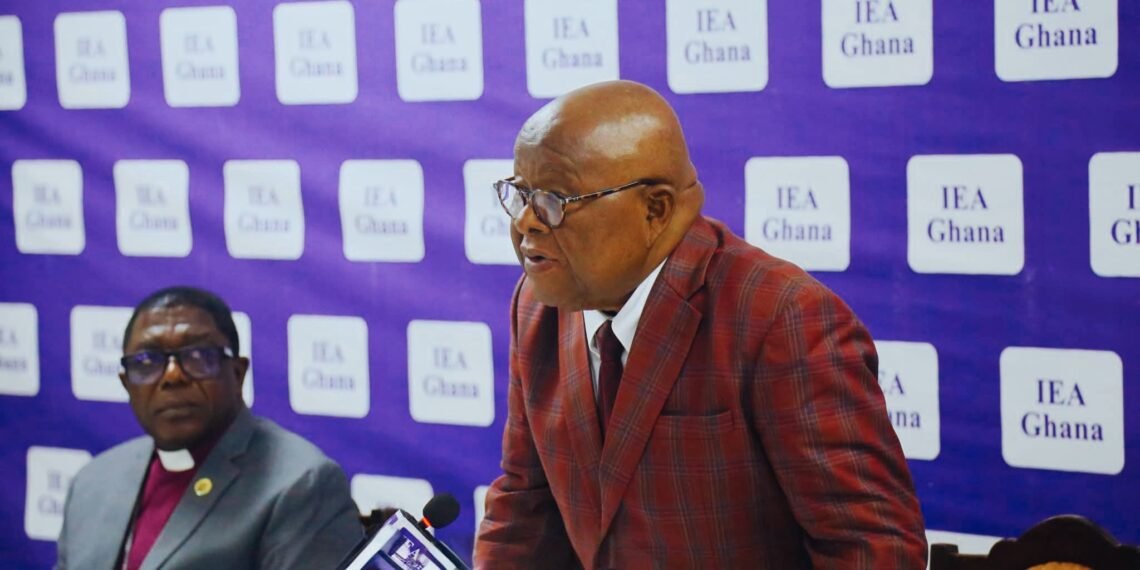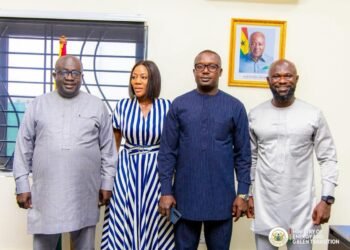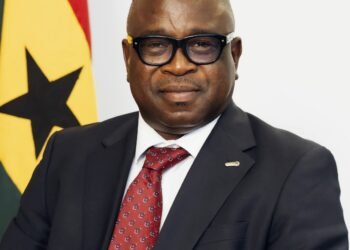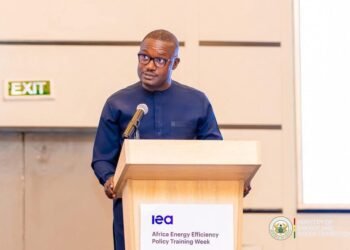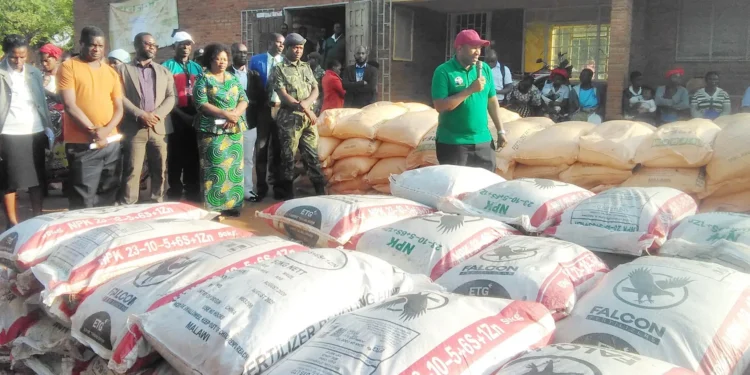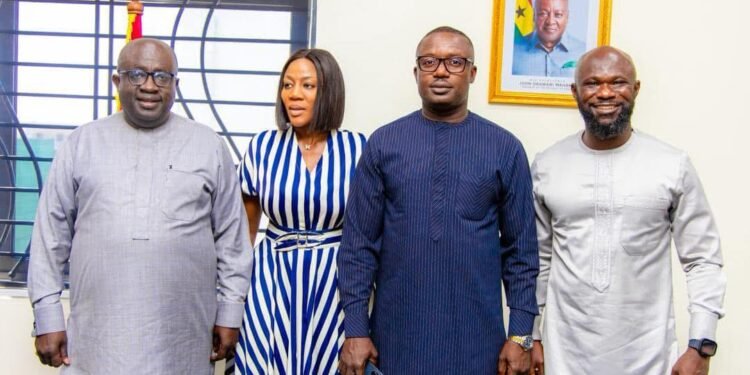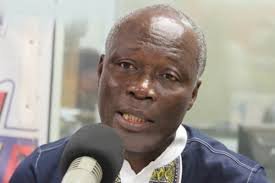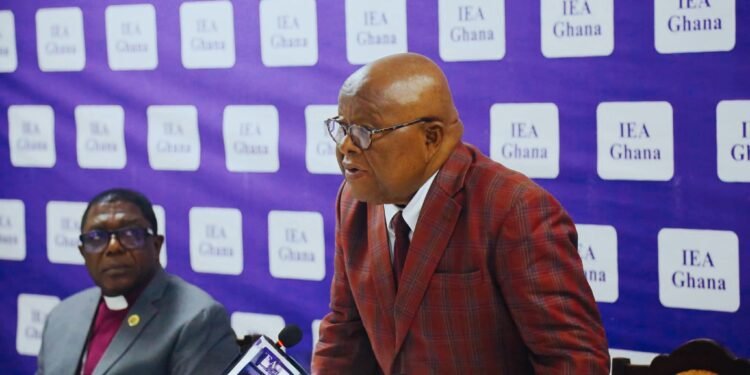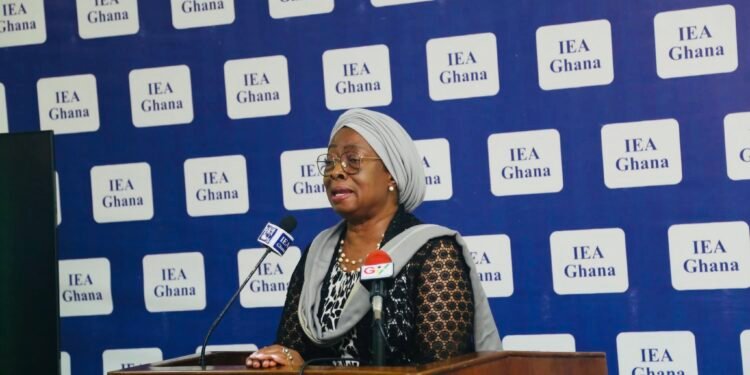Former Speaker of Parliament and political historian, Rt. Hon. Prof. Mike Oquaye, has delivered a blistering critique of Ghana’s long history with the International Monetary Fund (IMF), arguing that repeated bailouts have eroded the country’s economic independence and stifled sustainable growth.
Speaking at the Institute of Economic Affairs (IEA), Prof. Oquaye said Ghana must “end the vicious cycle of dependency” by turning to its mineral and natural resources as a foundation for true economic sovereignty.
The address, titled “Ghana Beyond the 17th IMF: A Search for Rescue in Our Mineral Resources”, provided both a scathing assessment of Ghana’s IMF engagements and a blueprint for reform anchored in local ownership of natural resources.
IMF Conditionalities and Ghana’s Economic Erosion

Prof. Oquaye traced Ghana’s 40-year relationship with the IMF across 17 programmes, arguing that each intervention, though framed as reform, has inflicted deeper structural wounds on the economy.
He remarked, “After seventeen IMF programmes, if the cure worked, we should not be sick again,” asserting that IMF conditionalities “have consistently militated against social and economic development.”
He cited examples of past austerity measures that slashed spending on education, health, and local development, recalling that during the 2009 IMF programme, government deferred statutory payments into the GETFund, the National Health Fund, and the District Assemblies Common Fund to meet fiscal targets.
The scholar also lamented the social cost of these adjustments, referencing the Programme of Action to Mitigate the Social Cost of Adjustment (PAMSCAD) introduced by then-Finance Minister Dr. Kwesi Botchwey to offset the human toll of IMF conditionalities.

“The conditionalities are always the same wage freezes, privatisation, and spending cuts all of which deepen poverty and weaken national resilience.”
Rt. Hon. Prof. Mike Oquaye, Former Speaker of Parliament and political historian
He drew parallels with global discontent surrounding IMF programmes, citing social unrest in Tunisia, Jordan, Pakistan, and Argentina, where austerity policies triggered public backlash. “IMF programmes deepen the misery of the vulnerable,” he warned.
Backing his analysis, Prof. Oquaye referenced the Trades Union Congress (TUC)’s opposition to Ghana’s 17th IMF programme, which described the Fund’s prescriptions as “inappropriate for Ghana’s economy.”
“The TUC’s position was simple and correct.
“No nation in Asia or Latin America that has achieved structural transformation did so by following the neo-liberal policies of the IMF and the Washington Consensus.”
Rt. Hon. Prof. Mike Oquaye, Former Speaker of Parliament and political historian
Tullow Arbitration: A Costly Lesson in Resource Governance
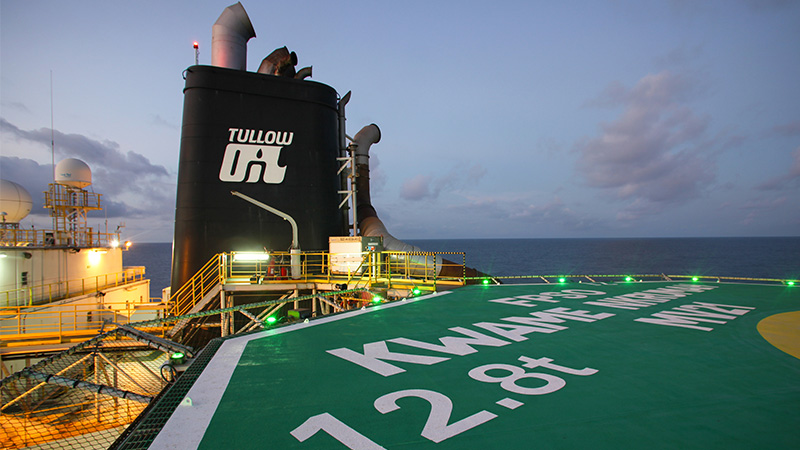
Prof. Oquaye also condemned what he described as “the chronic mismanagement and weak legal oversight” in Ghana’s natural resource agreements.
He cited the recent International Chamber of Commerce (ICC) arbitration case, where Ghana lost a $320 million tax dispute against Tullow Ghana, with additional costs exceeding $1 million.
“This case is a painful reminder of the cost of poor contract negotiation and lack of transparency in our extractive industry.
“It is a constitutional breach when the government fails to act as a trustee of the people in managing our resources.”
Rt. Hon. Prof. Mike Oquaye, Former Speaker of Parliament and political historian
He called for a full-scale, non-partisan inquiry into the circumstances surrounding Ghana’s repeated losses at international arbitration tribunals, urging government to suspend current efforts to extend oil field licenses for Tullow, Kosmos Energy, GNPC, and others until a review is completed.
Ownership Dilemma — Who Really Owns Ghana’s Gold?

Prof. Oquaye devoted a significant portion of his presentation to Ghana’s mining sector, questioning the extent of local ownership in the country’s mineral wealth.
Quoting former AngloGold Ashanti CEO Sir Sam Jonah, he noted that “the Ghana government currently has zero equity interest in AngloGold Ashanti, what a shame.”
He highlighted that most of Ghana’s major mining companies including Newmont, Golden Star, Kinross, and Bosai Minerals are between 80% and 100% foreign-owned, with the government retaining only a 10% carried interest.
“As a nation, we have become tenants on our own land.
“We export wealth and import poverty.”
Rt. Hon. Prof. Mike Oquaye, Former Speaker of Parliament and political historian
To chart a new course, Prof. Oquaye urged Ghana to emulate global models where countries have harnessed natural resources for national development without ceding ownership.
He pointed to the United Arab Emirates (UAE), where the Abu Dhabi National Oil Company (ADNOC) retains ownership of oil fields and engages private firms through service contracts, ensuring that the state captures the bulk of profits while contractors earn performance-based fees.
“The UAE model demonstrates that ownership can remain with the state while leveraging private sector efficiency.
“This is the direction Ghana must take away from royalty-based concessions toward service-oriented contracts.”
Rt. Hon. Prof. Mike Oquaye, Former Speaker of Parliament and political historian
He also praised Botswana’s diamond policy, which uses a 50-50 partnership model between the government and De Beers to reinvest mining profits into education, healthcare, and infrastructure.
“Botswana turned diamonds into development.
“That is what Ghana must do with gold and oil.”
Rt. Hon. Prof. Mike Oquaye, Former Speaker of Parliament and political historian
Citing Chile’s 2023 Mining Royalty Act, he noted how the South American nation balances investor incentives with progressive taxes and regional equity funds, channeling part of mining revenues into local development.
Similarly, he mentioned Bolivia’s 100% state control of lithium resources, where foreign companies serve as service contractors rather than equity partners.
“These models prove that it is possible to achieve national prosperity through resource nationalism backed by good governance.”
Rt. Hon. Prof. Mike Oquaye, Former Speaker of Parliament and political historian
Call for a Ghanaian Model, Resource Ownership as Economic Sovereignty

Prof. Oquaye concluded with a passionate call for Ghana to design its own home-grown framework for resource governance, blending lessons from global best practices with local realities.
“The way forward is clear, ownership must remain with Ghanaians. Royalties must end, and service contracts must prevail.
“The goal is not to chase investors away but to ensure equity, transparency, and value retention.”
Rt. Hon. Prof. Mike Oquaye, Former Speaker of Parliament and political historian
He further advocated for a national conversation on establishing a State Resource Corporation to lead in exploration, extraction, and commercialization, a structure akin to Norway’s Equinor with clear separation of policy, regulation, and commercial operations.
“State participation must be strategic, not bureaucratic.
“Our natural resources must work for Ghanaians, not against them.”
Rt. Hon. Prof. Mike Oquaye, Former Speaker of Parliament and political historian
In his closing remarks, Prof. Oquaye called for a paradigm shift — from reliance on external bailouts to resource-led development anchored in fiscal discipline and local empowerment.



